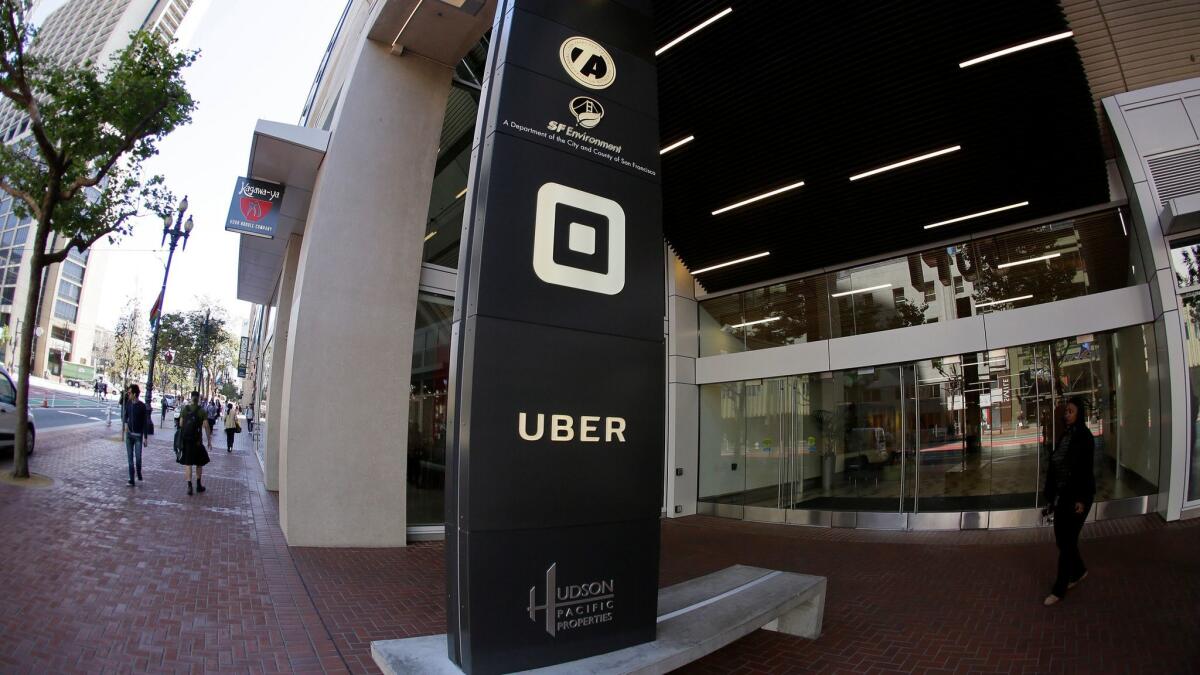More companies could follow Snap, Blue Apron IPO playbook under softened SEC rule

It used to take months from the day a company filed its paperwork to go public to the day it sold shares, giving potential investors loads of time to decide whether to buy in.
But under a new Securities and Exchange Commission rule set to take effect next month, big private companies such as Uber and Airbnb will be able to file financial documents with the agency confidentially — then release them publicly as little as 15 days before an initial public offering of stock.
Companies with less than $1 billion in revenue have been able to do this since 2012 under the JOBS Act, a federal law aimed at making it easier for companies to raise capital.
Now, the SEC will allow even the largest of companies to go public this way, part of an ongoing push by the agency to encourage more IPOs.
“We hope that the next American success story will look to our public markets when they need access to affordable capital,” SEC Chairman Jay Clayton, who was appointed to that post by President Trump, said in a statement.
Under the act, smaller companies have also been allowed to delay the introduction of costly accounting and auditing policies, but those breaks are not being extended to larger companies.
Allowing companies to file offering documents confidentially gives them a chance to fix shortcomings in their disclosures before releasing them to the public, or perhaps to decide not to go public after all. In either case, confidential filings prevent lengthy scrutiny from investors, the media and competitors.
“If you have sensitive information, or you’re not sure you’re going to pass muster with the SEC, it allows you to not publicly debut yourself until you’re ready to go,” said Peter Wardle, a partner at law firm Gibson Dunn who specializes in IPOs.
The vast majority of IPOs over the last few years have taken advantage of confidential filings. Wardle said 80% of the companies that went public in 2016 filed confidential statements with the SEC.
Companies to go this route include Snap Inc., the Venice-based parent of Snapchat, which went public in March and raised $3.4 billion, making it the largest IPO ever of a Los Angeles company. Ventura ad software firm Trade Desk also made a confidential filing, as did New York meal delivery company Blue Apron, which went public this week.
One potential downside is that the new rule could give investors less time to analyze a company in advance of its IPO.
Companies will have to publicly file their registration statements — lengthy documents outlining years of financial reports, risk factors, executive compensation and corporate strategy — just 15 days before selling shares or before pitching investors during a pre-IPO “road show.” In the past, that time period often stretched to six months.
Still, Dennis Kelleher, chief executive of Better Markets, an advocacy group that pushes for tighter Wall Street regulation, said two weeks or so is probably enough time for the big institutions and wealthy investors who get the first shot at buying shares in an IPO to make informed decisions.
Lloyd Greif, chief executive of downtown Los Angeles investment bank Greif & Co., noted that because many companies do an investor road show, investors will still have time to kick the tires. Blue Apron and Snap, for instance, both priced their IPOs about a month after their first public filings.
“I don’t see any downside here other than if you snooze, you lose,” Greif said.
Wardle and others say the new rule isn’t likely to result in a rush of additional IPOs as the universe of companies contemplating a public offering that already have more than $1 billion in revenue is small.
The most immediate potential beneficiaries include ride-hailing service Uber, short-term home rental app Airbnb and data analysis software maker Palantir. Other companies reportedly nearing the $1-billion mark include fashion start-up Stitch Fix, file-sharing app Dropbox, bookmarking app Pinterest and Uber rival Lyft.
Start-ups have been able to hold off on IPOs because there’s been an ample supply of private money from hedge funds, mutual funds and sovereign wealth funds seeking higher returns — though such deals carry higher risks. Companies not going public typically release less financial information and may have less rigorous accounting standards.
Kate Mitchell, co-founder of Scale Venture Partners, said the change could reflect the SEC’s concern about the increased exchange of company shares on the private market without much financial data available.
“It might be the SEC saying it would like this to be in the sunlight,” said Mitchell, part of an industry group involved in crafting the JOBS Act.
She said the $1-billion cap was an arbitrary number used to define a large company that ought to be able to afford the several million dollars in fees associated with standard regulatory compliance. With few hitches with smaller companies, she said, it’s time for the cap came off.
“It’s within the spirit of what we intended from the beginning,” Mitchell said.
More to Read
Inside the business of entertainment
The Wide Shot brings you news, analysis and insights on everything from streaming wars to production — and what it all means for the future.
You may occasionally receive promotional content from the Los Angeles Times.












